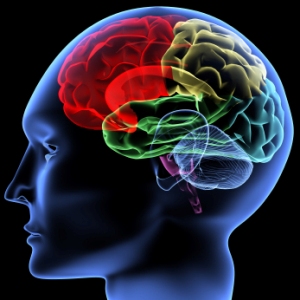
iStock
New insight into what causes the uncontrolled movement and noises - (tics) in people with Tourette syndrome - may lead to new non-drug treatments for the disorder, a new study suggests.
These tics appear to be caused by defective wiring in the brain that results in "hyper-excitability" in the regions that control motor function, according to the researchers at the University of Nottingham in England.
"This new study is very important as it indicates that motor and vocal tics in children may be controlled by brain changes that alter the excitability of brain cells ahead of voluntary movements," Stephen Jackson, a professor in the school of psychology, said in a news release.
"You can think of this as a bit like turning the volume down on an over-loud motor system. This is important as it suggests a mechanism that might lead to an effective non-pharmacological therapy for Tourette syndrome."
Facts about Tourette syndrome
Tourette syndrome affects about one in 100 children and usually beings in early childhood. During adolescence, because of structural and functional brain changes, about one-third of children with Tourette syndrome will lose their tics and another third will get better at controlling their tics.
However, the remaining one-third of youngsters will have little or no change in their tics and will continue to have them into adulthood, the investigators explained.
Throat-clearing and blinking are common tics. Some people with Tourette syndrome repeat words, spin or, rarely, blurt out swear words, which can cause social problems.
What does the study suggest?
For this study, published online in the Journal of Neuropsychology, the researchers compared the brains of people with Tourette syndrome to those without the disorder and found that those with Tourette were less able to control hyperactivity in the brain.
This suggests that there are mechanisms in the brain that help control tics and that they undergo development or re-organization during the teens.
Non-drug treatments may include certain forms of brain stimulation to control brain hyperactivity, the researchers said.
What are the non-drug options?
According to an article in the International Journal of Cognitive Therapy, one option would be cognitive behavioural therapy. Read more about behavioural therapy and tourette syndrome
The Tourette Syndrom Association in New York suggests a programme called Comprehensive Behavioural Intervention
Cannabis (marijuana) therapy, using its main active ingredient THC, can be effective in treating tics in the short term without side effects, but more research is needed and the possibility of addiction is a drawback.
Author Sheila Rogers' book Natural Treatments for Tics and Tourette’s takes a closer look at the environmental factors and underlying physical imbalances that trigger this condition's symptoms and explains how to treat it using natural and alternative therapies, from nutritional therapy, behavioral and counseling therapies, EEG biofeedback, and homeopathy to bodywork, energy medicine, and Chinese medicine.
More information
What makes Tourette's tick?
Self-hypnosis may help Tourette's
These tics appear to be caused by defective wiring in the brain that results in "hyper-excitability" in the regions that control motor function, according to the researchers at the University of Nottingham in England.
"This new study is very important as it indicates that motor and vocal tics in children may be controlled by brain changes that alter the excitability of brain cells ahead of voluntary movements," Stephen Jackson, a professor in the school of psychology, said in a news release.
"You can think of this as a bit like turning the volume down on an over-loud motor system. This is important as it suggests a mechanism that might lead to an effective non-pharmacological therapy for Tourette syndrome."
Facts about Tourette syndrome
Tourette syndrome affects about one in 100 children and usually beings in early childhood. During adolescence, because of structural and functional brain changes, about one-third of children with Tourette syndrome will lose their tics and another third will get better at controlling their tics.
However, the remaining one-third of youngsters will have little or no change in their tics and will continue to have them into adulthood, the investigators explained.
Throat-clearing and blinking are common tics. Some people with Tourette syndrome repeat words, spin or, rarely, blurt out swear words, which can cause social problems.
What does the study suggest?
For this study, published online in the Journal of Neuropsychology, the researchers compared the brains of people with Tourette syndrome to those without the disorder and found that those with Tourette were less able to control hyperactivity in the brain.
This suggests that there are mechanisms in the brain that help control tics and that they undergo development or re-organization during the teens.
Non-drug treatments may include certain forms of brain stimulation to control brain hyperactivity, the researchers said.
What are the non-drug options?
According to an article in the International Journal of Cognitive Therapy, one option would be cognitive behavioural therapy. Read more about behavioural therapy and tourette syndrome
The Tourette Syndrom Association in New York suggests a programme called Comprehensive Behavioural Intervention
Cannabis (marijuana) therapy, using its main active ingredient THC, can be effective in treating tics in the short term without side effects, but more research is needed and the possibility of addiction is a drawback.
Author Sheila Rogers' book Natural Treatments for Tics and Tourette’s takes a closer look at the environmental factors and underlying physical imbalances that trigger this condition's symptoms and explains how to treat it using natural and alternative therapies, from nutritional therapy, behavioral and counseling therapies, EEG biofeedback, and homeopathy to bodywork, energy medicine, and Chinese medicine.
More information
What makes Tourette's tick?
Self-hypnosis may help Tourette's




 Publications
Publications
 Partners
Partners










